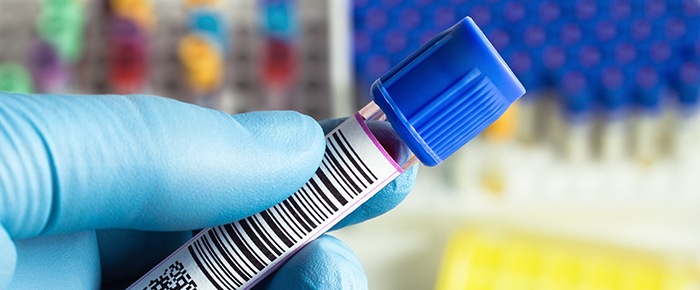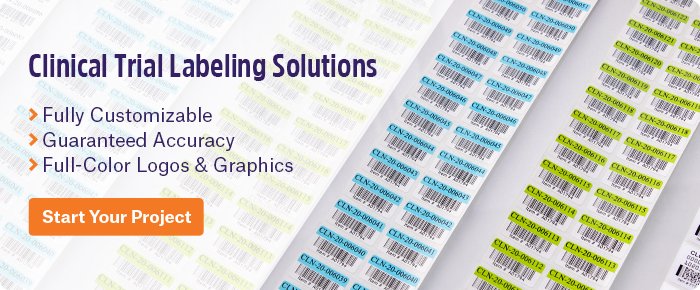 The continued globalization of clinical trials has created a new set of strategic, administrative, and linguistic challenges. This is in addition to the progressively more complex regulatory environment that the pharmaceutical industry must contend with, both locally and abroad. The use of labeling plays an important part in addressing these challenges but is often overlooked. Here, we will review some of the more prominent difficulties encountered when labeling in clinical trials and how the proper labeling solution can help.
The continued globalization of clinical trials has created a new set of strategic, administrative, and linguistic challenges. This is in addition to the progressively more complex regulatory environment that the pharmaceutical industry must contend with, both locally and abroad. The use of labeling plays an important part in addressing these challenges but is often overlooked. Here, we will review some of the more prominent difficulties encountered when labeling in clinical trials and how the proper labeling solution can help.
Globalization
The globalization of clinical trials requires the production of labels that observe variable local language requirements. Unfortunately, translating dosage quantities and instructions can be a slow, error prone process. Ensuring that labels are provided on time and with information that is coherent and understandable requires an effective labeling infrastructure.
To these ends, the use of innovative new labeling technologies can substantially reduce costs, while enhancing the reliability of the labeling process. A key aspect of this is clinical data management, which ensures the proper collection, integration, and availability of data. Focusing on the data, rather than solely the label, allows the label manufacturer greater flexibility to amend and customize content to address country-specific constraints. This includes technologies that contain language management tools, allowing translations and trial-specific terminology to be pre-approved and validated at every step of the process.
Time Constraints
Having trouble hitting milestones? You’re not alone. Achieving milestones and meeting timelines is considered an important objective by biotech and pharma; in fact, many clinical teams consider milestone achievement a top priority. This is partially due to the enormous pressure applied on clinical teams by sponsors, doctors, and patients to complete a study as quickly as possible for FDA review. However, meeting milestones is tough to achieve, as any number of complications can lead to delays. As such, labeling should be seamless and help to keep your clinical trial running smoothly.
To ensure that you receive your labels within the necessary time restraints with the confidence that they will always meet your specifications, it is critical to partner with a knowledgeable and reliable label supplier. First and foremost, you should look at whether they control the manufacturing process by producing their labels in-house. A label company that manufactures their own labels can afford more flexibility and be better at meeting a customer’s unique requirements. Moreover, this gives them greater control over the lead time of the order, allowing them to meet demanding timelines.
Patient Attrition
Patient recruitment represents one of the highest costs in clinical trials. However, the cost of failing to keep the patients that do enroll can be even higher. Despite substantial efforts to keep patients engaged throughout the study, patient attrition remains a serious problem and a major cause of delays. Recent studies have shown that attrition rates for clinical trials commonly range between 15% to 20%, sometimes exceeding 30%. Several factors affect patient retention, but labeling is often overlooked. Proper labeling and packaging in clinical trials is not only critical for meeting study regulations and guidelines but is also a key determinant of subject attrition.
As drug studies can be complicated and stressful, it is often difficult for patients to follow the recommended drug regimen or to maintain the required dose and frequency. If patients feel overwhelmed, become confused, or believe that they have made a mistake, it can become easy for them to withdraw from the trial. For many studies, the label serves as a key source of information and determinant of patient engagement. Accurate and concise labels ensure that the patients remain well informed about the proper administration of the drug, making the entire process easier and more reassuring.
Product Packaging
Deciding on the packaging for your clinical trial may appear trivial, but it can be pivotal to a study’s success. Pharmaceutical packaging and labeling is complicated by the number of products that need to be identified and the varied conditions they will be exposed to. Taking all these conditions into account is critical, as they can lead to the failure of the label, and failed labels could mean a failed trial. Moreover, certain labels can also serve a purpose beyond identification, from asset tracking to product security.
The first consideration when deciding on product packaging is, whether the container is a plastic medication bottle, glass vial, syringe, or simply a file folder. Each of these surfaces will require labels with slight variations in their adhesive and face stock. Next, you should consider the conditions that the label will be exposed to. Product labels may have to withstand moisture (in the form of steam, frost, or water), refrigeration, or cryogenic storage. If the label will undergo sterilization, it may need to resist the high temperatures and pressure of steam autoclaves, exposure to ethylene oxide gas, or gamma irradiation. Finally, any special properties of the label should also be considered. Clear labels may be required for glass vials to guarantee that the contents remain visible, while booklet labels may be needed for plastic medication bottles. In addition, tamper-evident labels can add an extra layer of security by making sure the removal of the label is immediately visible, thus flagging any potential tampering.
Additional Considerations
There are several additional factors that need to be considered when establishing your clinical trial protocol. As anyone who has ever been involved in a drug trial will attest, the potential for undesirable protocol deviation is often unavoidable. This can include minor changes, such as increasing data collection frequency or updating expiry dates and storage conditions, and major changes, including changing the type of study control or expanding the number of investigational sites. This often means creating new labels or amending the current stock. As trials become more complex, the need to quickly change label content increases, making label manufacturers that can rapidly adapt vital to a trial’s success.
At the end of the day, the right label for your clinical trial will depend on the specific requirements of your given application. A highly trained and experienced support team can recommend the appropriate label for any situation, helping you avoid potential problems down the road. This will reduce the chance of costly errors derailing your study, leading to lost time and higher costs. Reduce patient attrition and give yourself the best chance for success by using the right identification solution.
LabTAG by GA International is a leading manufacturer of high-performance specialty labels and a supplier of identification solutions used in research and medical labs as well as healthcare institutions.


